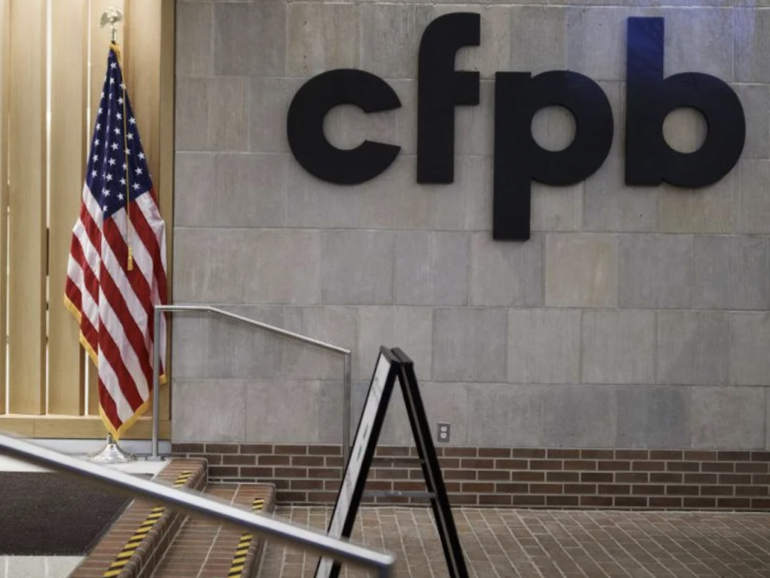Today, October 19, 2023, the Consumer Financial Protection Bureau (CFPB) proposed a long-awaited rule that aims to accelerate the shift to open banking in the US.
The Personal Financial Data Rights rule proposal includes additional protections for consumers trying to access their financial data and forbids financial institutions from charging for access.

“With the right consumer protections in place, a shift toward open and decentralized banking can supercharge competition, improve financial products and services, and discourage junk fees,” said CFPB Director Rohit Chopra. “Today, we are proposing a rule to give consumers the power to walk away from bad service and choose the financial institutions that offer the best products and prices.”
The proposal is the first to enact Section 1033 of the 2010 Consumer Financial Protection Act, a much-anticipated part of the Dodd-Frank Wall Street reform.
A move to improve Consumer Data Rights In the Finance Sector
The proposed rule enters a sector that typically makes switching between financial institutions difficult. If consumers are unhappy with the financial services they receive, they can face a number of challenges and fees to access the data needed to switch to other providers.
“Many consumer finance markets are structured in ways that don’t allow consumers to exercise their power,” said Chopra in prepared remarks following the rule’s announcement. “Financial firms have learned that they don’t need to provide great rates or customer service for a sustained period of time. Instead, they can attract customers with teaser rates, change them whenever they want, and make it bureaucratically difficult to switch.”
The rule moves to implement consumer rights over the sharing of their data, allowing users to allow the access of third parties to their financial information and cash flow data. This could create increased access to financial services and credit for consumers who are typically underserved.
“For so long, it’s been the incumbents that have put the governs on where consumers can share data, how consumers can share data, how a consumer can interact with a third party app or anybody but them,” said Penny Lee, President, and Chief Executive Officer of the Financial Technology Association during a Fintech Nexus Twitter Spaces discussion about the proposal.
“(The proposal implements) the overall notion that consumers are now more in control of their data and are able to transport it…it establishes the right for that consumer to call out behavior that either governs or limits their data.”
By ensuring that consumers can have easy access to their own data, the rule aims to spark competition within the financial sector. With financial institutions unable to rely on their barriers to make customers “stick,” the hope is that a focus on innovation and the creation of better products will come into play.
“When you put competition into the marketplace, consumers do benefit,” continued Lee. “Oftentimes in a competitive marketplace, you see that reduction of fees, you see that challenge, you see even the elimination of them.”
The proposal also outlines safeguards against the misuse of consumer data, allowing consumers to revoke access to data as well as creating strict permissions surrounding financial data.
“Today’s rule is a win for consumers, who are one step closer to having a strong right to control their financial data,” wrote Lee in a prepared statement.
“We look forward to the CFPB creating strong rules of the road that guarantee people’s right to use the digital financial tools they want, regardless of where they bank,” stated Lee. “The proposal builds on our industry’s progress and can provide assurances for continued consumer-friendly innovation.”
A Long Road Ahead
The proposal is now open for comments, which will be reviewed before the CFPB finalizes legislation by Fall 2024. Speakers on the Fintech Nexus Twitter Space warned that even though the draft rule is a long-awaited win for some in the industry, there are still some hurdles to overcome before it gets passed.
“This is a rules proposal. It’s not yet passed rules,” said Simon Taylor, Head of Strategy and Content at Sardine. “So there is a comment period till the end of the year. And the lobbyists are already out.”
He explained that, for him, there were two points in the proposal that he found particularly interesting. “There is a need for a fair standards body that balances the decision-making power across all policies, has an appeals process, and must be authorized by the CFPB. This standards body still needs to be set up.”
He explained that while there are standards bodies that could work, some in the fintech sector are concerned by their significant contingent of large banks. He felt that the proposal contained some elements that large banks would not find beneficial to their business model.
“As you read this, by far, the biggest section is the obligations of data providers,” he continued. They’ve got to create access to their data, and they can’t charge for it. Banks aren’t going to be happy with that.”
Increasing Competition in Banking
On the Twitter Spaces call, particular attention was put on the knock-on effects on larger financial institutions. Many believe the new rules are weighted in favor of smaller institutions and fintechs.
The first point of the proposal focused on “junk fees” implemented for consumer access to data.
“There’s going to be no fees earned by banks,” said Peter Renton during the call. “So there doesn’t seem to be a whole lot in it for the incumbent banks that have relied so long for so long on lethargy and inertia to make their money.”
Lee explained that in implementing this aspect, the CFPB may accelerate a shift in the banking sector that had already been initiated by new entrants.
“You already started to see that behavior occur when you had competitor financial companies come in and offering checking or savings without fees and waiving overdraft fees. You’re already starting to see that in the marketplace,” she said. “The change of behavior that incumbent banks are having to do, now the majority of them, credit unions and others, are now doing away with those overdraft fees and other things they were charging.”
By implementing the rules, she explained that competition would be enhanced, ultimately improving conditions for consumers.
“This is a win for consumers. But it is also a win for innovation,” she said. “Eight out of 10 Americans use a digital financial product, to be able to manage their finances. And that’s likely only to increase… So I would say it’s intertwined. Because the behavior of the consumer is changing, and they want access, they want affordability, they want increased adoption, or the ease of which they can address various different needs they have.”
“This gives them less friction and the ability to use digital tools in which they’re native to or getting native to, to be able to have a more robust financial life.”
The Fintech Nexus Twitter Spaces forum, discussing the new rule, was recorded and is available for listening on demand.
RELATED: USA 2023: The CFPB has safe competitiveness in its sights


